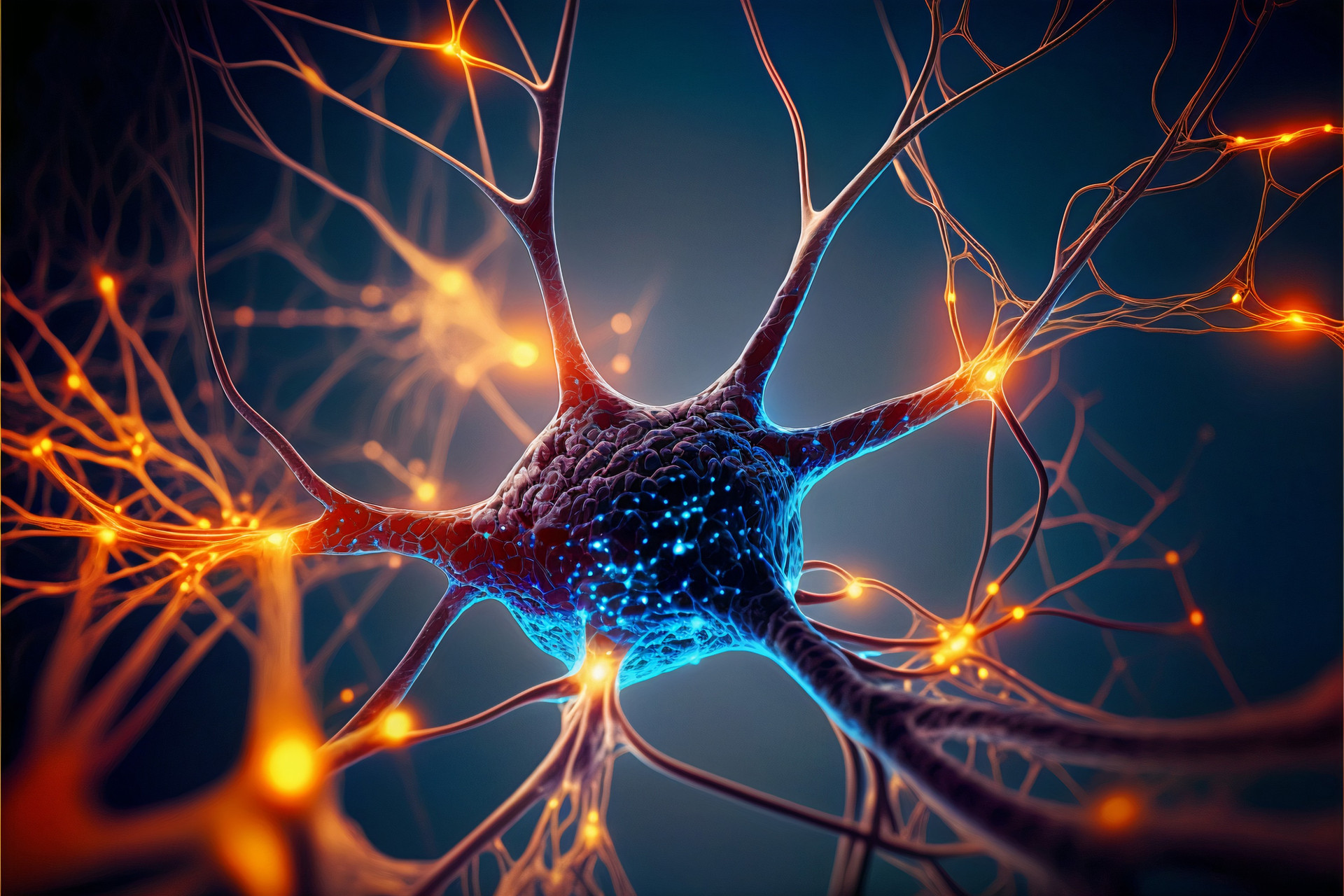Functional Neurological Disorder: Why You Should Take a Chiropractic Functional Neurology Approach
Functional neurological disorder is a treatable neurological condition caused by a disconnection between the brain and the body. Taking a chiropractic functional neurology approach to treatment allows your brain and body to resync and supports improved neurological function and movement.


Functional neurological disorder is a treatable neurological condition caused by a disconnection between the brain and the body. Taking a chiropractic functional neurology approach to treatment allows your brain and body to resync and supports improved neurological function and movement.
If you’ve ever suffered from chronic migraines, vertigo, tinnitus, tingling in an extremity, or even brain fog, you may be surprised to learn that you’ve experienced functional neurological disorder.
While it sounds serious and, frankly, scary, functional neurological disorder, also known as FND, functional neurologic disorder, or functional neurological symptom disorder, is both relatively common and treatable.
The great news is this means you don’t have to live in discomfort or sacrifice your quality of life. You just need to better understand what functional neurological disorder is, what causes it, how to know if you may have it, and the benefits of taking a chiropractic functional neurology approach to your treatment.
What Is Functional Neurological Disorder?
So, what is FND? First, let’s determine that a neurological disorder is a condition that impacts the brain, spinal cord, and nerves throughout your body. Now, a functional neurological disorder is a neurological condition in which your movement is impaired in some due to a disconnection between the brain and the body in which there is a problem coordinating your brainstem reflexes. Think of it as your brain and body being out of rhythm and no longer in sync.
FND has puzzled many medical professionals for years. In fact, over the last decade, there’s been an ongoing debate about the meaning of the term “functional neurological disease” between functional neurologists and conventional neurologists.
Here’s why: Functional neurologists, a subsection of specialized chiropractors, define FND as any disorder resulting from a disruption in the connection between your brain and body. And this can lead to a wide range of symptoms, from chronic headaches to tinnitus to even gut dysfunction! That’s right — any dysfunction in the body can be linked back to FND.
Another difference between the way functional neurologists and conventional neurologists view FND is that conventional neurologists consider the exact cause of FND to be generally unknown but believed to be related to a combination of genetic, environmental, and psychological factors.
Meanwhile, functional neurologists know that FND always stems from an injury, a developmental issue, or a genetic vulnerability to an environmental trigger.
Because everyone has their own unique genetic vulnerabilities, symptoms can differ from person to person. A great example of this is how different people respond to concussions and experience different symptoms, from headaches to brain fog to dizziness. Simply put, the symptoms you may experience from FND will likely vary greatly from someone else with FND due to your predisposition for certain genetic vulnerabilities versus theirs.

What Are The Symptoms of FND?
For those living with functional neurological disorder, one of the most frustrating aspects is the wide range of symptoms that can develop. Some people may experience weakness or even paralysis in their arms or legs while others may experience tremors, numbness, or pain.
To make it even more confusing, these symptoms can come and go, change in intensity, or even shift from one part of the body to another. Because it’s a complex condition that impacts the way your nervous system functions, symptoms of FND are often unique to the individual, meaning two different people who have FND can experience completely different symptoms.
Some of the most common symptoms of FND include:
- Weakness or paralysis, specific to one extremity, multiple extremities, or throughout your entire body. This can happen due to a hemiplegic (aura) migraine or an unidentified stroke.
- Tremors or shaking, mild or severe, in different parts of your body parts.
- Numbness or tingling that can vary in frequency and intensity.
- Difficulty walking or problems with coordination, including unsteadiness or stumbling.
- Seizures, including everything from convulsions to loss of consciousness. Altered awareness may be attributed to seizures as well.
- Brain fog and memory loss, including difficulty finding certain words or trouble with recollection.
While these symptoms are common in people with FND, remember that anyone with this condition has a unique experience. As a result, some people may experience additional symptoms and/or varying severity. Keep reading for some lesser known yet very common associated symptoms and conditions of FND.
5 Surprising Associated Symptoms and Conditions of FND
In addition to the primary symptoms of functional neurological disorder, you may also experience a wide range of associated symptoms and conditions that can directly impact your overall well-being and quality of life. Here are a few of the additional symptoms and conditions that can accompany FND.
1. Chronic pain: Ongoing pain is one of the most common associated symptoms of FND, and it can occur throughout the body, such as pain in your back, neck, arms, legs, and/or joints.
2. Anxiety and/or depression: Many people who have FND also experience anxiety and/or depression, largely due to the heightened feelings of hopelessness and uncertainty.
3. Migraines or headaches: Another very common associated symptom of FND is experiencing chronic headaches or migraines. These can include visual disturbances and/or sensitivity to light and sound.
4. Gastrointestinal problems: Here at The Dearing Clinic, many of our patients with FND also report experiencing certain gastrointestinal problems, including irritable bowel syndrome (IBS), acid reflux, and/or abdominal pain. (This happens because dysfunction in the lining of your gut is known to distort the immune response throughout your body. For example, a simple overgrowth of normal bacteria in the gut can travel to the brain and destroy the nerves in the brain via the gut/brain axis.)
5. Insomnia and difficulty sleeping: Experiencing difficulties falling asleep, staying asleep, or even experiencing restful and restorative sleep is another common associated condition of FND that can actually exacerbate other FND-related symptoms and negatively impact your overall well-being.
By recognizing and addressing these associated symptoms and conditions of FND and sharing them with your physician, you can receive a more comprehensive and holistic approach to your treatment. But before we discuss treatment options in more detail, let’s take a quick look at how FND is diagnosed.
How is Functional Neurological Disorder Diagnosed?
One of the most defining elements of functional neurological disorder is that, unlike other neurological disorders such as Parkinson’s disease or multiple sclerosis, it doesn’t present with structural or biochemical abnormalities that can be detected through imaging or lab tests.
As a result, diagnosing FND can be challenging for many physicians. And this is why seeking treatment from a functional neurologist is key.
A functional neurologist is trained to conduct a thorough medical history and physical examination that includes measuring your overall function, coordination, cognition, metabolism, and autonomic function through a series of specific tests. Based on your results as well as a thorough map of your brain, a functional neurologist can determine if FND is the cause of your symptoms and then begin treatment.
How is FND Treated? The Role of Chiropractic Functional Neurology
Once you learn you have functional neurological disorder, you’re likely going to begin treatment, as living with this condition can be challenging, both physically and emotionally. While the uncertainty of your day-to-day symptom flares can lead to anxiety and frustration, it can also be challenging to explain FND to others, leading to strained relationships.
Fortunately, there is hope, as FND is a treatable condition. The key lies in finding the weakest reflexes and slowing tuning them up until they can operate on their own. By resyncing your brain and body through a personalized treatment plan specifically designed for your reflexes, your brain and body can reconnect, allowing your reflexes to respond to your brain’s instructions, just as they’re supposed to do.
This is why taking a chiropractic functional neurology approach is critical. This specialized form of chiropractic care focuses on the relationship between your nervous system and your musculoskeletal system and utilizes a variety of techniques and therapies to restore proper nerve function and improve your overall neurological health.
When you begin treatment with a functional neurologist, some of the elements involved in your personalized treatment plan may include spinal adjustments, oxygen-promoting therapeutic exercises, and neurological reflex strengthening exercises (including visual, vestibular, gait, and neurological coordination exercises).
These treatments work to address the underlying neurological dysfunctions and imbalances, which is why chiropractic functional neurology is known to help those with functional neurological disorder reduce their symptoms and improve their quality of life.
Key Takeaways
- Functional neurological disorder (FND) is a treatable neurological condition resulting from a disconnection between your brain and your body.
- FND can be caused by an injury, a developmental issue, or a genetic vulnerability to an environmental trigger.
- Common symptoms include: weakness or paralysis, numbness or tingling, poor coordination, brain fog, chronic migraines, and vertigo and/or tinnitus.
- The key to treating FND lies in working with a functional neurologist to address the underlying neurological dysfunctions and imbalances and resync your brain and body to improve your neurological function.
Ready to feel like you again?
* Your next step toward feeling better starts today. At The Dearing Clinic we make it simple to get started with care that truly fits your life. Book your visit now and let’s design a plan that restores your energy, relieves your pain, and helps you enjoy more of what matters most.


